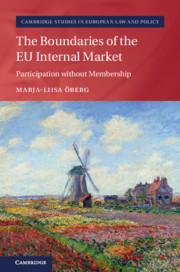Conditionality is widely used by international organisations to induce “client states” to engage in structural reform. In the European Union (EU) it plays an important role in ensuring that accession countries adopt EU rules as a condition of membership. Reliance on external incentives, however, limits the effectiveness of bilateral accession conditionality, especially for pre-accession countries with uncertain membership prospects. This article argues that multilateral institutions can boost the rule transfer effects of bilateral accession conditionality by reinforcing its incentive structure. The contention is tested by empirical research into the Energy Community in South East Europe. The research uses cross-national and cross-sectoral comparison to evaluate the rule transfer effects of Community institutions relative to accession conditionality and the terms of energy interdependence. It finds that whilst accession status is the main predictor of alignment with the energy acquis, there is evidence that multilateral institutions of the Energy Community exert a significant reinforcement effect.
